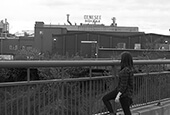Evanna DiSalvo
Interview No. 228
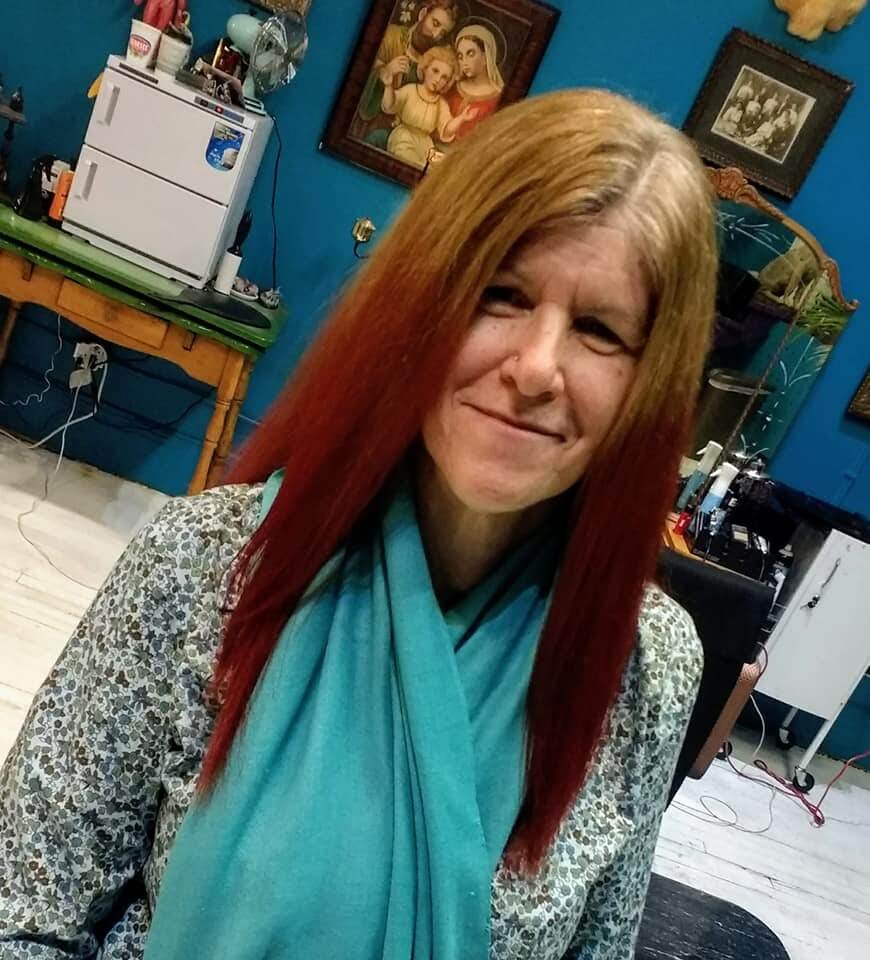

Interview by Emily Hessney Lynch.
Published May 1, 2020.
Where are you from? How did you end up in Rochester?
I grew up about an hour south of Rochester on a dairy farm outside of Mt. Morris. My first adult job was at the University of Rochester. As a country girl, I never thought I’d live in the city! I started out working in the Physics, Optics, and Astronomy Library then moved to the Carlson Library.
What are some hidden gems you've discovered around Rochester?
ArtisanWorks is one; I’m very visual and it’s overwhelming, but you can find all kinds of interesting things to look at. All the parks are good. Letchworth is a long-time favorite of mine. In my neighborhood, there’s a tiny one called Marie Daley Park. It’s nice to go and sit and feel space around you, it’s one of my favorites these days.
I love shopping at thrift stores like Goodwill on South, Amvest in Henrietta, and the Salvation Army in Geneseo. I also enjoy our local coffee shops like Equal Grounds, Boulder, and Starry Nites.
What are some of your favorite local nonprofits to support?
Mary’s Place helps refugees with a lot of social services we don’t offer at the library. Rochester Refugee Resettlement Services also does a lot of good stuff with refugees. ESOL Associates of Rochester offers class for learning English. There’s a volunteer group called Food Not Bombs that brings food to the library and leaves it for people; some people really relied on it.
If you could only eat one Rochester food for the rest of your life, what would it be?
Some kind of sandwich from Harry G’s, they have lots of interesting ones.
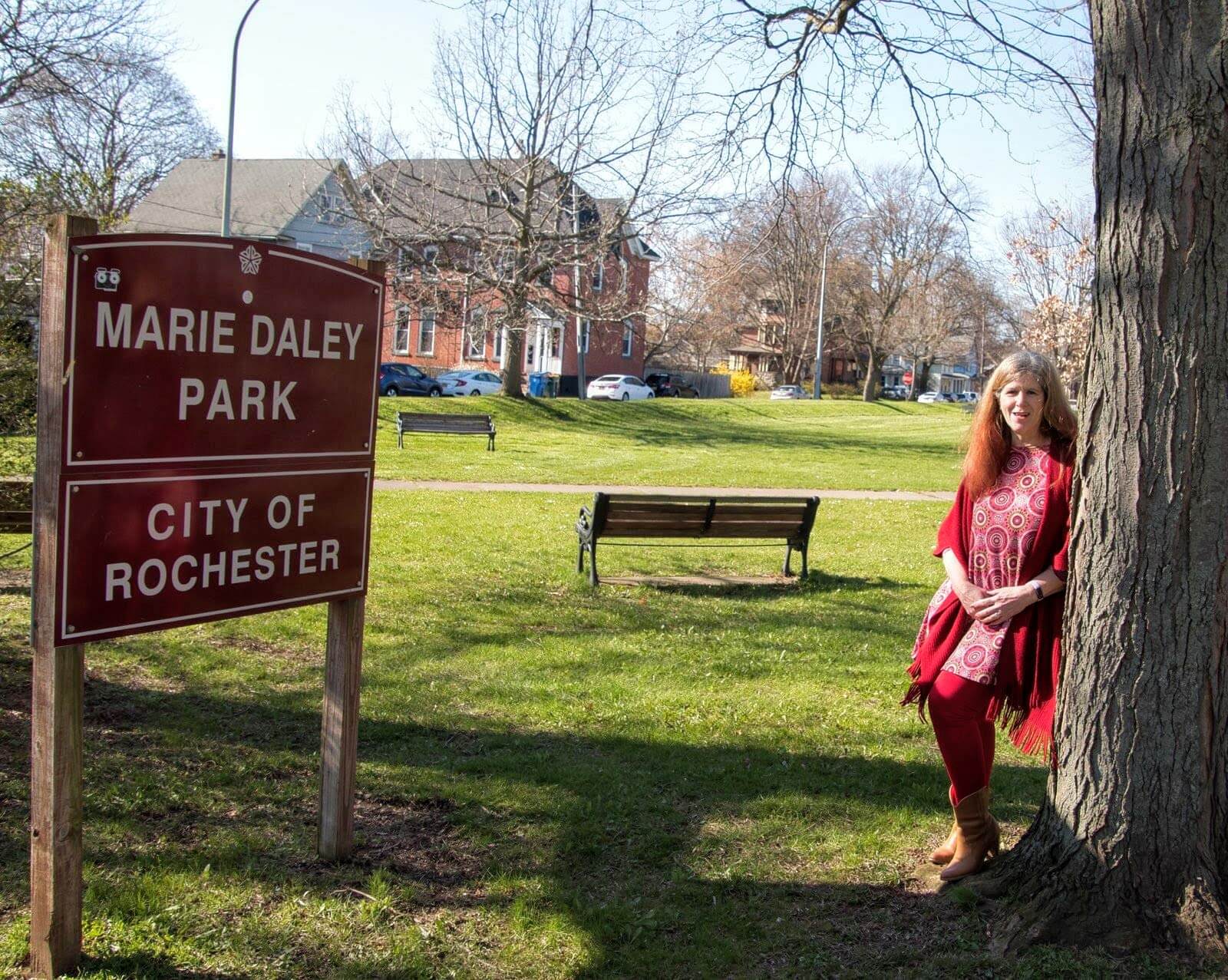

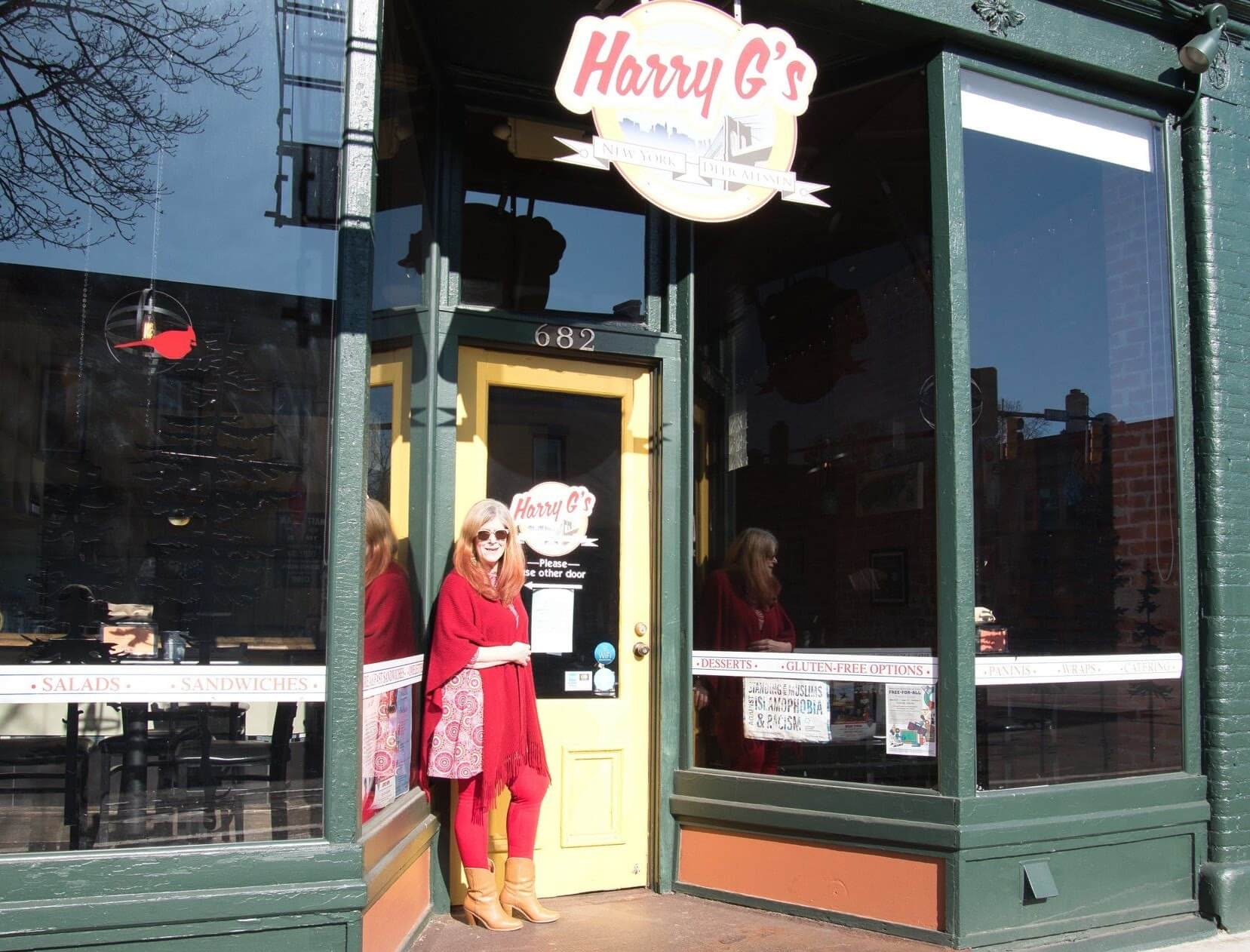

What's one memory you have that captures what Rochester means to you?
One of the more recent marches I attended, the Climate March. I was energized by being part of the crowd, part of something good. There were young families with babies, and I was there with my granddaughter. Everyone came out because they cared. I love the activism and that people are willing to come out.
What makes Rochester unique?
It’s a good size; it’s big but not too big. The neighborhoods make it unique because we have so many different ones. I appreciate that the neighborhoods give it a hometown feel. People in the city are much more like the people I grew up with in the country, more down to earth.
What would you like to see change in our city over the next year?
Rochester will be very different on the other side of COVID-19. I’m hoping it will strengthen our neighborhoods. Maybe we’ll see more gardens. I hope that caring about others, even when we don’t have to do it, remains. I hope there’s a lasting legacy of caring about others.
Tell me about your work at the Maplewood Community Library as the New Americans Librarian.
I offer English as a new language tutoring--that term is more common now than ESL or ESOL, because English could be their fourth or fifth language, not just their second. The tutoring is open enrollment with no minimum attendance. Sometimes I have volunteers who come in, sometimes I don’t. I also help people fill out job applications and resumes and provide moral support. Two days a week I also help people studying for the citizenship test. A lot of my job is just being available to help people.
How would you describe the population you serve?
There have been a lot of Burmese refugees in the Maplewood neighborhood. We see people from Nepal, Somalia, Congo, Cuba, Albania, the Dominican Republic, Japan, and quite a few from Puerto Rico recently. I counted 26 countries at one time! The library is a community and everyone is welcome. People come to the library to find family, support each other, and make friends. They come for the companionship. It’s a need that we help fulfill; I hear how much it means to them. We provide a safe space for practicing English with people going through the same things. The support they give each other is really beautiful.
In 2016, there were almost 1,200 refugees accepted into Rochester. Due to the current federal administration, this year it’s just 126 refugees. Approximately 1% of all refugees who come to the U.S. come to Rochester.
What kind of volunteer opportunities are there at the library?
We always accept volunteers! People can help out with tutoring new Americans. We’re often able to match people with tutors one-on-one. The goal is always to have fun and learn something. You can email me if you’re interested in volunteering.
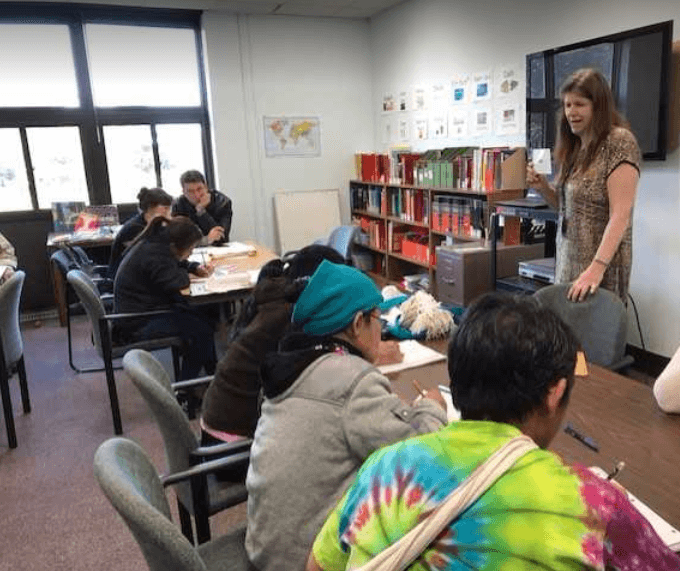

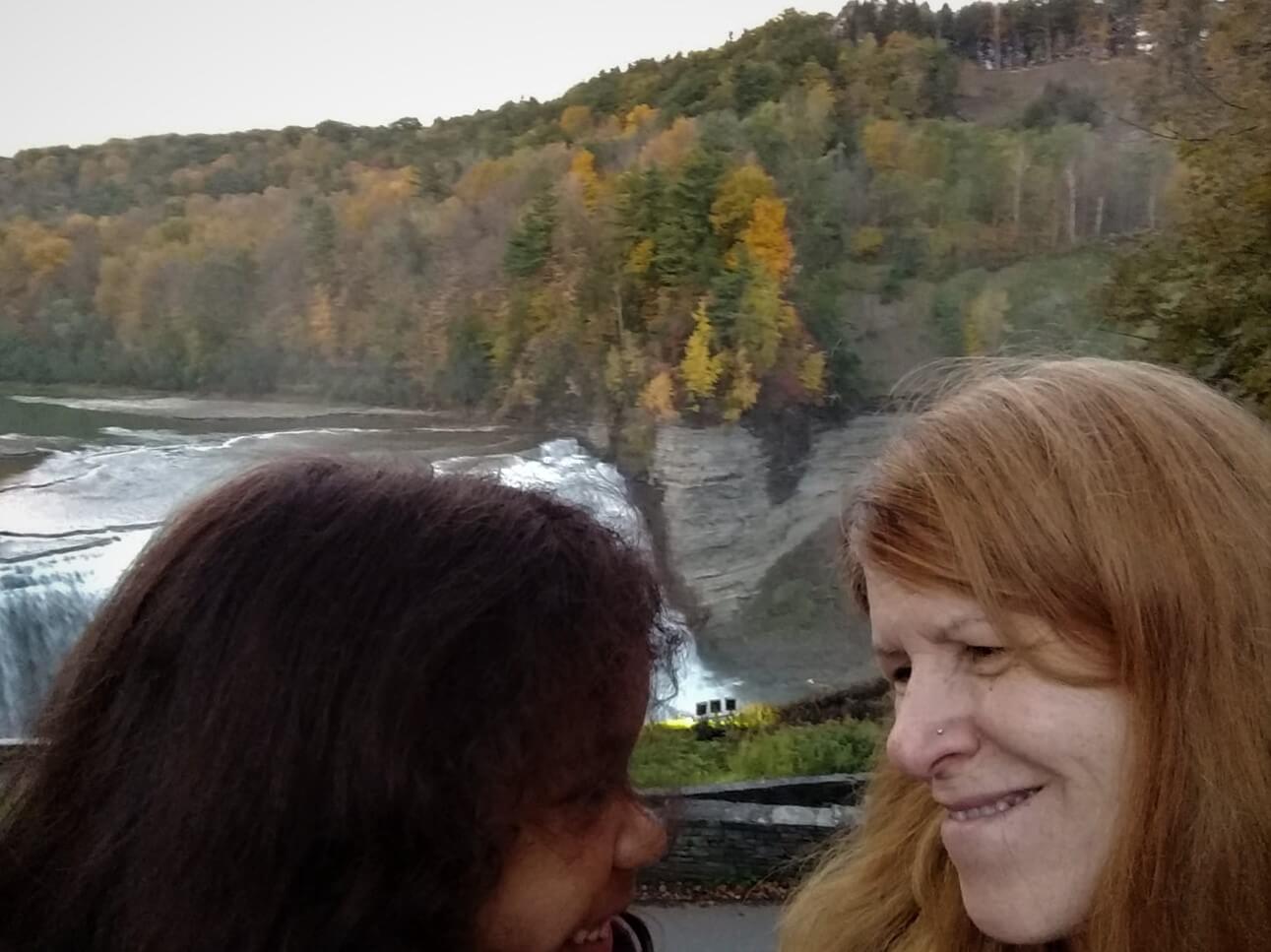

What challenges have you faced with serving new Americans during COVID-19?
I’m afraid I won’t be able to reach people. Many people don’t have computers or come into the library to use our phone. I have some of their email addresses but I haven’t gotten a good response. It’s hard to be understood on the phone when English isn’t your first language and you can’t see facial cues and gestures. I worry about the kids, too. The library was a safe place for a lot of kids. Refugees’ children usually have good English, but they don’t have people or resources at home to help them with online learning.
What's one thing you wish people knew about Rochester's libraries?
It’s so much more than books. These days we’re more of a community center. We need to hear from people! We try to find out what people need and get it for them, within reason.
Evanna DiSalvo loves thriftstores, coffee shops, and her work helping new Americans at the Maplewood Community Library. For more of her perspective, visit our Instagram.

